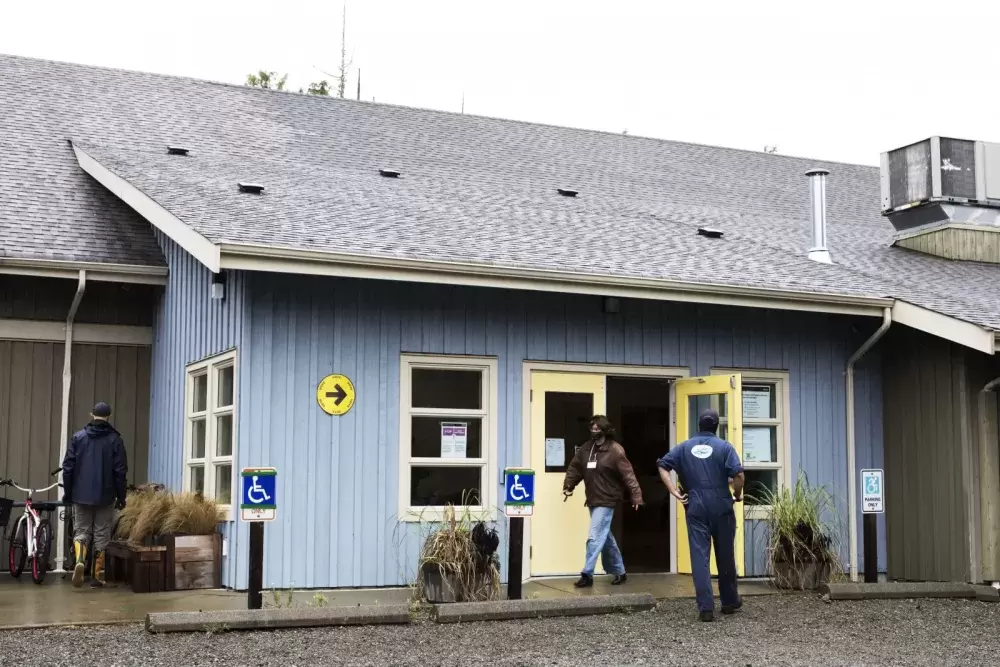The federal election resulted in representation in Ottawa almost identical to how Parliament appeared when the vote was called in mid August, with an orange sweep across Nuu-chah-nulth territory and the House of Commons returning to a Liberal minority.
Prime Minster Justin Trudeau did not regain the majority his party lost in the last federal election less than two years ago, collecting 158 seats from the Sept. 20 vote - three more than when the House of Commons last sat in the summer. Under new Leader Erin O’Toole the Conservatives retained their 119 seats, while the Bloc Québécois increased their seat count by two to 34 and the NDP grew its representation by one to 25. The Greens remain unchanged from the last Parliament with two elected to the House.
As was the case two years ago, the Liberals garnered little support on Vancouver Island, often coming in third behind the NDP and Conservatives. All of the island’s ridings went to the NDP, with the exception of Elizabeth May’s longstanding Green tenure in the Saanich-Gulf Islands, and a vote count that remained inconclusive for Nanaimo-Ladysmith as of press time, where the Green’s Paul Manly last served as an MP.
In Nuu-chah-nulth territory on the west coast, NDP incumbents Rachel Blaney, Gord Johns and Alistair MacGregor all retained their respective seats for North Island-Powell River, Courtenay-Alberni and Cowichan-Malahat-Langford.
On the day after the election, Johns was feeling a combination of fatigue and excitement. He finished his campaign with a visit to Ahousaht on Sunday, and on the following day came out with over 7,000 votes more than the Conservative’s Mary Lee.
“A lot of people were wondering why I finished my campaign where there’s a community of 325 voters out of 104,700 electors. It’s because they matter,” said Johns. “Canada benefits truly from the wisdom, the deep cultural history, advice and knowledge of Ahousaht and all Nuu-chah-nulth nations.”
With another Liberal minority ahead, Nuu-chah-nulth Tribal Council President Judith Sayers reflected that the absence of a dominant party in Ottawa has benefitted First Nations on Vancouver Island’s west coast.
“The only relief for me is that the Conservatives didn’t get in,” she said. “That’s going back to Harper days - but even worse…They really didn’t understand Indigenous people or any issues.”
Although Trudeau’s government has not lived up to the expectations he set during his first term, when he announced that no relationship was more important to Canada than that with First Nations, Sayers has seen some progress in recent years.
“I think as time has gone on, we’ve been able to raise the prominence of our issues on a daily basis,” she said, referencing a visit this summer by Indigenous Services Minister Marc Miller to Tseshaht territory. “I’ve seen the ministers become a lot more vocal within their portfolios than I’ve ever seen before.”
For the last year and a half, COVID-19 has been a day-to-day issue for everyone in Canada, which led to criticism of Trudeau calling an election amidst the fourth wave of the pandemic. Reaching out to voters was different then in past elections, observed the NDP’s MacGregor, who collected over 7,000 votes more than the Conservative’s Alana Delonge in Cowichan-Malahat-Langford.
“Out on the campaign trail there weren’t as many public events as there were in elections past,” he said. “When I was out door-knocking we had to make sure that we were staying away from apartment buildings.”
“None of us wanted this election, and at the same time we’ve got lots of work to do,” added Johns.
When MPs do return to the House this fall a critical item for reconciliation with First Nations will be going forward with the United Nations Declaration on the Rights of Indigenous People’s Act. This legislation, which received Royal assent in June, has been called a framework to guide Canada’s implementation of the UN declaration in consultation with Aboriginal peoples.
But what entails proper consultation is a critical matter, cautions Sayers. For the government to just gather input from the Assembly of First Nations is not good enough.
“AFN is not the rights holder,” she said of the national advocacy organization.
It will be up to the NDP and other parties to ensure that the Liberals are “respecting the spirit and intent of that law,” stressed MacGregor.
“In trying to make sure that our federal laws are in harmony with the UN declaration, I think it’s going to be up to each individual critic in the opposition side,” he said.
“Reconciliation, defined and led by First Nations and Indigenous communities, has to be guided by the implementation of the UN declaration,” added Johns. “It needs an implementation timeline.”
The Government of Canada’s language that accompanied the passing of Bill C-15 mentions seeking input from Indigenous peoples “in decision-making and management activities”, collaborating “in a manner that gives voice to the declaration.”
But this will hit many Nuu-chah-nulth-aht who rely on ocean resources with a bitter irony. After over a decade of stalled negotiations and multiple court decisions that affirmed the rights of five Nuu-chah-nulth nations to catch and sell fish from their respective territorial waters, a message from hereditary chiefs authorized their people to disregard catch allocations set by Fisheries and Oceans Canada. The Aug. 4 message from Ahousaht, Hesquiaht, Mowachaht/Muchalaht, Tla-o-qui-aht and Ehattesaht Ha’wiih permitted their people to harvest according to the First Nations’ own fishing plans.
“The government needs to come to the table with a real mandate to address the court decision and ensure that Indigenous people aren’t back in court, that they’re out on the water fishing,” said Johns. “I really believe that when the Nuu-chah-nulth prosper, everybody prospers.”







